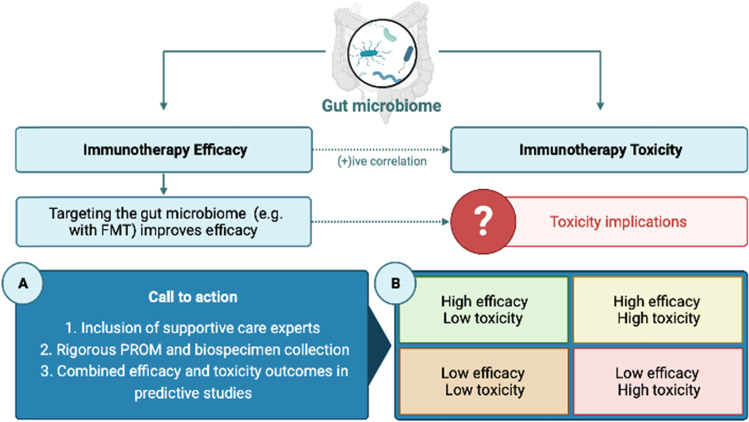Fig. 1.
The dual contribution of the gut microbiome to the efficacy and toxicity of immunotherapy. Microbial signatures that predict efficacy often parallel those that predict IrAEs, mirroring clinical data that show a positive association between efficacy and toxicity. Attempts to enhance efficacy through microbial intervention must therefore consider the implications for heightened toxicity. Our call to action (A) reinforces the critical need to include supportive care experts from early in the research pipeline and rigorous PROM/biospecimen collection to ensure new attempts to enhance immunotherapy efficacy do not negatively impact patient health and wellbeing. We also highlight (B) that attempts to identify microbial predictors of response need to be performed with more granular stratification of patient outcomes that includes efficacy and toxicity outcomes. This would identify the “optimal responder”, that is, a responder with mild and manageable IrAEs. Image generated by BioRender

